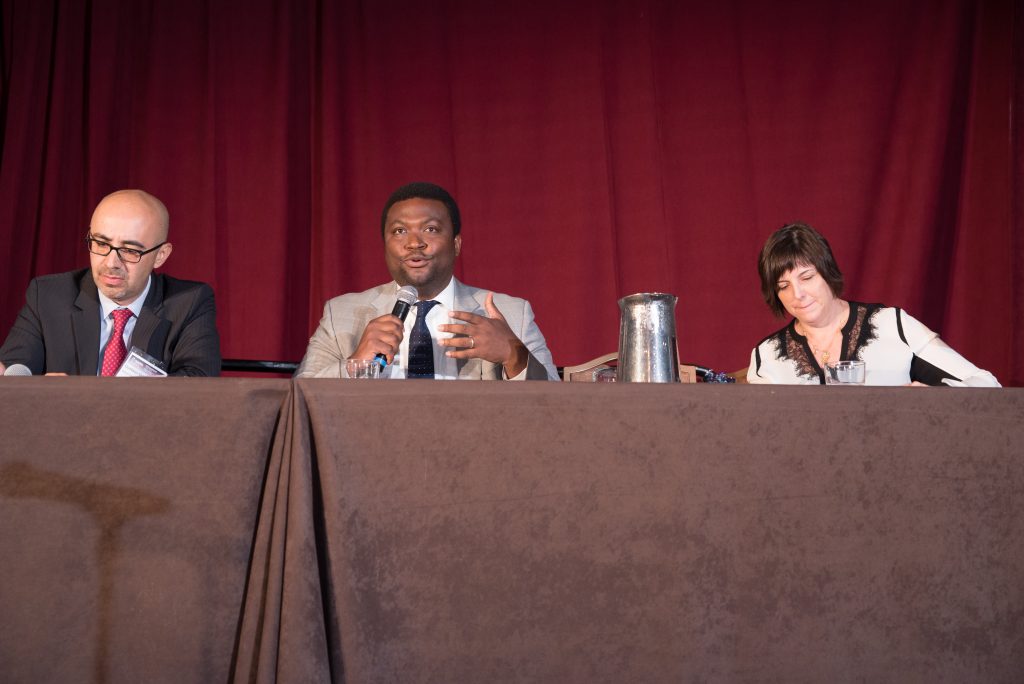Urban Institute features HAND’s Annual Meeting & Housing Expo

(left to right) Gustavo Velasquez of Urban Institute, Ernst Valery of SAA | EVI and Nicky Goren of Meyer Foundation discuss the causes and consequences of redlining at HAND’s Annual Meeting & Housing Expo.
On the heels of HAND’s Annual Meeting & Housing Expo, the team under the How Housing Matters Initiative at Urban Institute was inspired to author a piece reflecting on some of the policy changes that would be needed to address issues of housing discrimination and equity. An excerpt from the piece titled, “Rethink Housing and Community Development to Advance Racial Equity and Inclusion” is as follows:
In the US, descriptions of housing affordability challenges and differences in wealth, health, and education need to include a racial equity lens, or the picture is incomplete. Legally authorized and mandated housing discrimination through federal lending and investment policies laid the cornerstone of complex socio-spatial issues that historically segregated communities continue to face. Many of the inequities within and between neighborhoods, particularly in large metropolitan areas, trace their roots to redlining.
Such discriminatory lending practices have left a legacy of disinvestment predominately in black and brown communities. Although the Community Reinvestment Act of 1977 sought to undo forced inequalities within neighborhoods by creating strong incentives for positive investment activity, the ramifications of housing segregation and economic exclusion will take additional policy attention to address…
…Meaningful and inclusive community revitalization can break down some of the barriers instituted through disinvestment and discrimination. This can be done through equitable development, but it requires intentional engagement and community input. Community development corporations (CDCs) and community land trusts (CLTs) have facilitated this engagement. While CDCs and CLTs usually have residents on their boards, CDC leadership often does not represent those they serve, which can leave residents feeling disengaged.
At the annual meeting of HAND, a membership organization for housing providers in Maryland, Virginia, and Washington, DC, Ernst Valery, founder and president of EVI Equity, addressed this challenge. He said, “We think so much about renovating the building, we need to also renovate the people.” EVI purchased Essex Village, an apartment complex in Henrico County, Virginia, that was far from providing its residents with a platform for success in life; according to Valery, it has been deemed the county’s worst apartment complex. EVI and the property manager CAPREIT quickly formed a tenants’ association to ensure that Essex Village residents were involved early in the planning process. Residents expressed excitement that the new owners wanted to hear their voices and to collaborate on creating lasting change in the housing development. When tenants are offered a seat at the table, they are eager to get involved, but developers need to provide the space to be heard.
You can read the article in full here.






Leave a Reply
Want to join the discussion?Feel free to contribute!